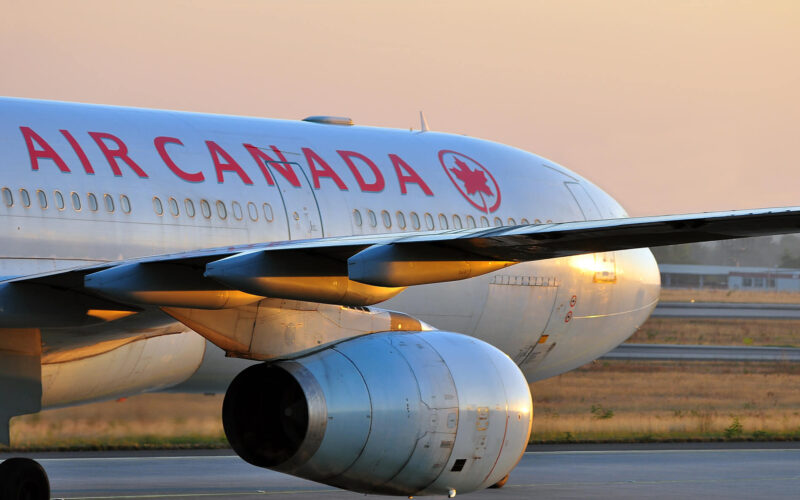Air Canada (ADH2) reported a loss of $526 million in its third-quarter financial results. Plans to reduce costs include staff layoffs, flight cuts and cancelations of aircraft deliveries.
The airline had a loss of C$685 million ($526 million) for the third quarter, compared with a profit of C$636 million ($488 million) the previous year. Passengers traffic declined by 88% and total revenues – by 86% from the third quarter of 2019.
“Today’s results reflect COVID-19’s unprecedented impact on our industry globally and on Air Canada (ADH2) in what has historically been our most productive and profitable quarter”, said Calin Rovinescu, the President and Chief Executive Officer of Air Canada (ADH2).
Downsizing aircraft and workforce
On November 9, 2020, the air carrier announced future steps for recovery. Air Canada (ADH2) will be downsizing its fleet in an effort to mitigate the losses. It is deferring some new aircraft deliveries and canceling orders for 10 Boeing 737 MAX and 12 Airbus A220 aircraft entirely.
“We are deferring delivery of new Boeing 737-8 and Airbus A220 aircraft scheduled for delivery in 2021 and 2022 and cancelling 10 Boeing 737-8s and 12 Airbus A220s, representing about 40 per cent of the remaining scheduled deliveries”, said Rovinescu in a press release.
A total of 79 aircraft, owned by Air Canada (ADH2) and its subsidiary Air Canada Rouge, will be taking early retirement. It would reduce the airline’s cost structure and lower its carbon footprint.
The fleet restructuring and rationalizing would help Air Canada (ADH2) to lower its capital expenditures by approximately $3 billion for the 2020 to 2023 period compared to its projected expenditures at the end of 2019.
The Montreal-based carrier has already reduced the workforce by approximately 20,000 employees, or more than 50% of its staff, via layoffs, employment terminations or voluntary separations, early retirements, and special leave.
Plans for freighters
Since the beginning of the pandemic, Air Canada (ADH2) has been transporting medical supplies using a combination of Boeing 787 and Boeing 777 aircraft as well as four converted Boeing 777 and three converted Airbus 330 aircraft by removing seats from the passenger cabin. However, these passenger-to-freighter conversions were temporary.
With a decline in passenger traffic, the airline is looking at the possibilities of converting some of its recently retired Boeing 767s into cargo-only aircraft. The conversion would include cleaning up the interior, blocking out the passenger windows and strengthening the cabin floor for heavy load transportation. Technically the aircraft would become 767 BCFs – Boeing Converted Freighters. BCFs can carry up to 52 tones of payload.
“Our nimble Cargo team has pivoted to dedicated all-cargo flights during the pandemic and Cargo will become an increasingly important segment of our business going forward”, outlined Rovinescu.
What is in store for the future?
In the beginning of October, 2020, Air Canada (ADH2) has slowly reopened some of its international flights. The company has been trying to push for softening of travel restrictions. “We have also continued our discussions with the Government of Canada on a more measured, science-based approach to travel restrictions and quarantines, which remain amongst the most onerous in the world”, said Rovinescu.
However, Canada’s Prime Minister Justin Trudeau stated the country was not planning to open the US borders until its neighboring country controlled the spread of coronavirus. The border would remain shut until at least November 21, 2020.
Canada also had a resurgence of COVID-19 cases, so the borders might be closed to non-essential travel for the rest of 2020. For Air Canada (ADH2) that would mean the fourth-quarter revenue could be similar to the third quarter.
In fourth-quarter Air Canada (ADH2) still expects to burn through CA$12 – 14 million per day ($9 – 11 million) due to increases in end-of-lease payments and higher expenditure related to the A220 deliveries.
On November 9, 2020, Air Canada’s (ADH2) stocks surged by the double digits as Pfizer and BioNTech announced that their COVID-19 vaccine is more than 90% effective, according to Reuters.

